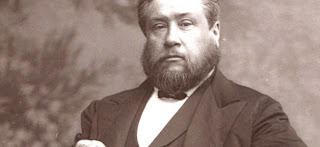
Over at Christianity Today’s Web site (subscription required), popular pastor Jack Hayford of The Church on the Way fame offers a few ideas on how to make unbelievers feel more comfortable in church . . .
We invite all the people to gather around the Lord's Table and partake in small groups. We believe it is the Lord's Table we are invited to, the Lord is doing the inviting, and no one is excluded. To us that means unbelievers are invited, as well . . . we want people to know that they are welcome. For example, I might say, "If you are visiting with us today, you are not only welcome to participate, you are urged to. If you were at my house and it came dinnertime, I wouldn't leave you sitting in the other room while I went to the dining room . . .
It sounds as if pastor Hayford desires to be a good host. I’m sure that if I were invited to his dinner table he wouldn’t want to make me feel uncomfortable by telling me that there’s arsenic in the food and that I might get sick and/or die if I partake. No, that would be rude.
Unfortunately, not everyone is as thoughtful as pastor Hayford. Here’s two noted examples of inhospitality:
John Calvin
A man in Calvin’s congregation refused to repent of his sins and was consequently denied the Table of the Lord. Not feeling “welcomed,” the man complained to the Genevean Council. Ruling in the man’s favor, the council ordered Calvin to grant him the supper.
As the man, and his sword-bearing friends, began to approach the table on the following Lord’s Day, Calvin threw his arms over the table and proclaimed, “These hands you may crush, these arms you may lop off, my life you may take, my blood is yours, you may shed it; but you shall never force me to give holy things to the profaned, and dishonor the table of my God.”
How rude!
Apostle Paul
The Apostle Paul was definitely not very welcoming when it came to granting access to the Lord’s Table to those in sin. In the later portion of 1 Corinthians 11, Paul explains the significance of the occasion (vs. 23-26). He also explains the consequence of partaking in an unworthy manner, or not exercising proper discernment—the possibility of sickness and death ( vs. 27, 29, 30). For this reason, Paul tells us to examine ourselves (vs. 28). “But if we judge ourselves rightly, we would not be judged” (vs. 31).
Furthermore, Paul tells us that if we exercise proper discernment that we (believers) will not be “condemned along with the world” (unbelievers, vs. 32). Paul also points out that this simply isn’t another meal: “If anyone is hungry, let him eat at home, so that you will not come together for judgment . . .” Paul is certainly excluding unbelievers here. Ms. Manners would be scandalized!
Good Host/Bad Host?
So there you have it. You can follow Calvin’s and Paul’s example and guard the Table of the Lord, or you can follow pastor Hayford’s example and open the gates wide. A word of caution, though: If you decide to follow pastor Hayford’s example, I’d recommend that your church purchase extra insurance.
To gain a proper understanding of the Lord’s Supper, including who should and should not partake, I recommend reading questions and answers 75 through 82 of the Heidelberg Catechism.
Labels: Doctrine of the Church, Exegesis, Sacraments








